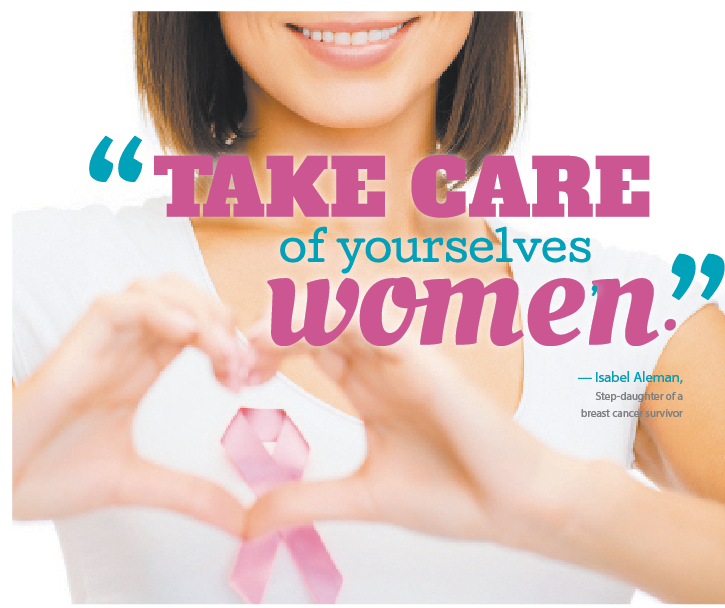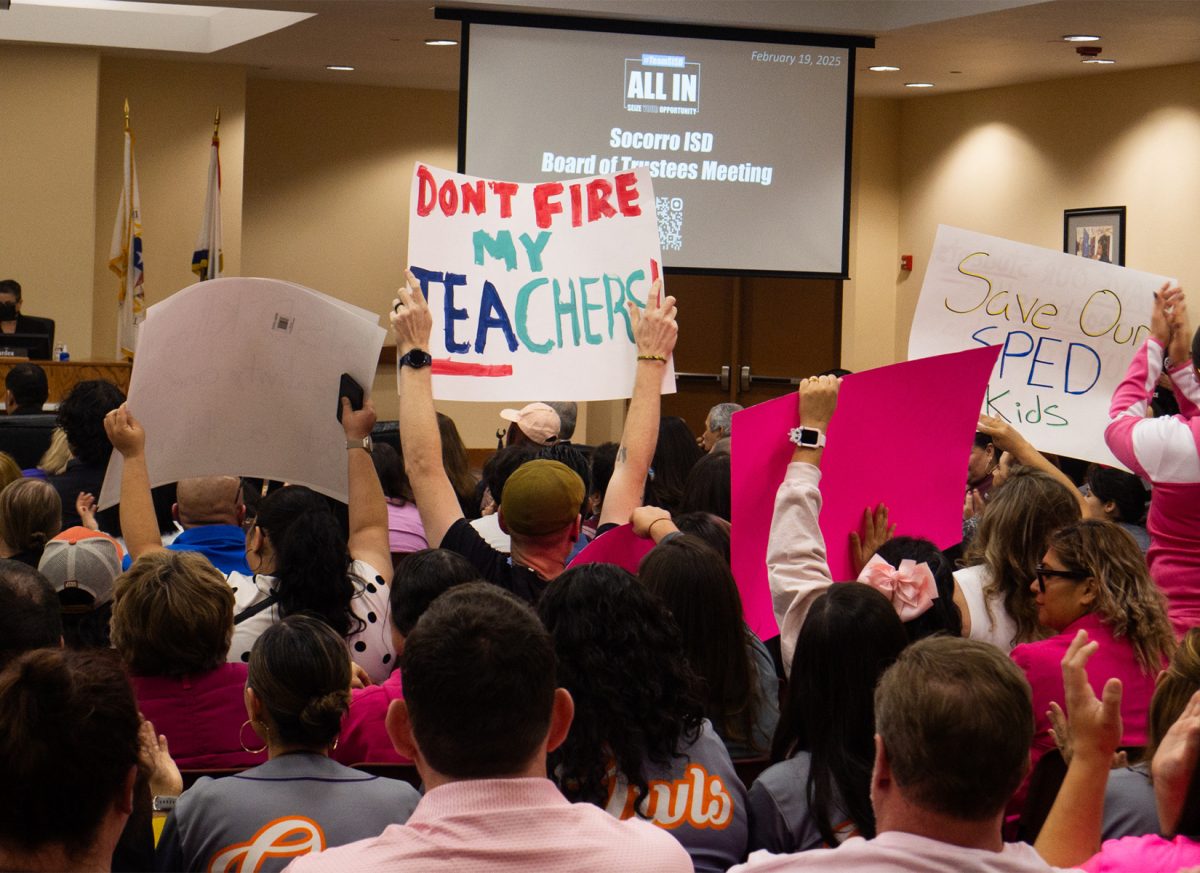The color pink, especially in October, has become emblematic of breast cancer awareness, but its bright hue is offset by the dreariness of statistics related to the disease.
According to the Susan G. Komen Foundation, it’s estimated that in 2014 there will be 232,670 new cases of invasive breast cancer, 62,570 new cases of in situ breast cancer and 40,000 breast cancer deaths.
Hispanic women are among the worst affected by breast cancer. In 2012, it was estimated that 17,100 new cases of breast cancer would occur in Hispanic women and 2,400 of these women would die as a result.
Men are affected too, 430 are estimated to die from the disease in 2014.
The stats are not surprising for Marilyn Aleman, senior multimedia journalism major, and her sister, Isabel Aleman, senior public health major.
“All the women in my family on my mom’s side have had at least a lumpectomy,” Marilyn Aleman said.
A lumpectomy is the removal of cancerous tissue.
That includes her grandmother, her two aunts and her mother. They were all diagnosed with breast cancer.
According to Giulio Francia, assistant professor of biological sciences who is researching treatment for metastatic breast cancer, the number of lumpectomies performed in El Paso is much higher than the national average, hovering around 80 percent compared to 60 percent.
“To know that that’s where my sister could possibly be in the future is kind of a little overwhelming,” Isabel said.
Despite being paternal sisters, Isabel identifies Edna Aleman, Marilyn’s mother, as her own.
“She is kind of like my mom, I’ve known her since I was in diapers,” Isabel said. “I love her like a second mother.”
When Edna began her battle with breast cancer, the sisters handled the fight differently.
“She was going through breast cancer and I was having cervical problems,” Marilyn said. “At that time we really took each other seriously and we kind of gained a new relationship that way.”
While Marilyn Aleman tried to support her mother by being with her and attending every radiation treatment, every day for seven weeks, Isabel tried to be supportive in another way.
“I wouldn’t treat her any differently when she was going through that because she already got the sympathy from everywhere else. I didn’t want her to feel like a cancer victim, I wanted her to feel like a person,” she said.
Marilyn said she was able to see the empowerment cancer brought for her mother.
“When she finished it was very empowering and I remember they filled her office with balloons everywhere and I remember taking her out to eat and see her just relax,” Marilyn said.
Still, the vulnerability beneath the struggle was apparent.
“I’ve never seen someone that strong look that vulnerable,” she said.
Both witnessed the physical sacrifice that came with the cancer after Edna underwent treatment and had to undergo a lumpectomy.
“Radiation therapy, I’ve seen it on my mom, your skin turns a dark orange and her nipple was turning purple, it does damage,” said Marilyn Aleman. “She says it’s hard to look in the mirror and accept who she is.”
Both also agreed that the best advice they can give to women is to get their mammograms done in order to screen themselves for breast cancer.
“Take care of yourselves, women,” Isabel said. “You’re life is more valuable and it’s the only thing you
have, really.”
The Breast and Cervical Cancer Services program offers clinical breast examinations, mammograms, pelvic examinations, and Pap tests throughout Texas at no or low-cost to eligible women. BCCS is partly funded by the Centers for Disease Control and Prevention and National Breast and Cervical Cancer Early Detection Program.
For more information and eligibility requirements on BCCCP, please contact Pat Morales or Adriana Valdes of the El Paso affiliate CCDC at 771-6305.
Maria Esquinca can be reached at the [email protected].






